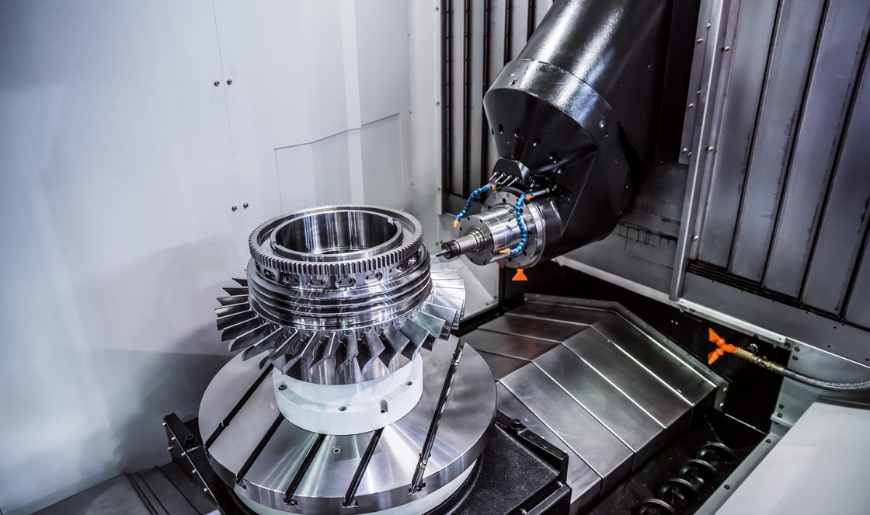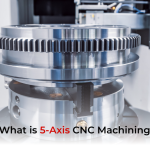Understanding the Basics of Precision Machining and Its Role in Manufacturing

In the world of manufacturing, precision machining plays a pivotal role in ensuring that parts and components fit together seamlessly and perform at their best. Whether it’s in aerospace and medical devices, the demand for highly accurate and reliable components is greater than ever. But what exactly is precision machining, and why is it so crucial for modern manufacturing? Let’s break it down.
What Makes Precision Machining So Special?
Imagine trying to fit a piece into a puzzle, but this puzzle has parts measured down to the thousandth of an inch. Unlike standard machining, which works within a wider range of tolerances, precision machining demands high accuracy in shape, size, and finish. The difference? It’s often the fine line between a product that works and one that fails.
To achieve this level of accuracy, manufacturers use cutting-edge machinery like CNC machines. These tools carve, shape, and mold materials often metals, plastics, or composites into parts that meet exact specifications. So, whether it’s a turbine blade for an airplane or a tiny screw for a medical device, this process ensures that everything aligns to perfection.
The Key Techniques in Precision Machining
Several machining techniques are used to achieve high levels of accuracy and quality in manufacturing. Some of the most common methods include:
- CNC Machining: In this process, a computer program guides the machine tool to cut, drill, mill, or shape a material. This highly accurate process can be used on metals, plastics, and other materials.
- Turning and Milling: Turning involves rotating a piece of material while a cutting tool shapes it, while milling uses a rotating cutter to remove material. Both of these methods are essential in creating parts with precise dimensions and complex geometries.
- Grinding: Grinding is a finishing process with abrasive wheels that provides good surface finishes and precision in the dimensions. It can be applied over other machining processes to refine the shape of a part.
These techniques allow manufacturers to produce parts that meet strict specifications, whether for high-volume production or one-off prototypes.
Why “Precision” Isn’t Just a Buzzword
As industries continue to demand higher performance from their products, the tolerance for error becomes smaller. A slight imperfection in a part can lead to significant failures down the line, especially in industries like aerospace, where even the smallest flaw can compromise safety and performance.
Here are a few reasons why precision machining is essential:
- Reliability and Performance: Precision parts are more reliable, ensuring that products function smoothly over time. Whether it’s a car engine or a medical device, these parts need to operate flawlessly.
- Cost Efficiency: While this process may require more advanced equipment and expertise, it can ultimately save money in the long run. By reducing the risk of defects and rework, manufacturers can achieve higher quality products with fewer delays.
- Tight Tolerances: In industries like aerospace or electronics, the slightest variation in size or shape can lead to operational failure. This process ensures that parts are manufactured with extremely tight tolerances, ensuring they fit together correctly every time.
- Innovation: With the ability to create intricate and complex geometries, precision machining allows for the development of innovative products that wouldn’t be possible with less accurate methods.
Role of Precision Machining in Modern Manufacturing
Today, precision machining is indispensable in almost every sector of manufacturing. Whether you’re talking about the components that make up the next-generation fighter jet, a robotic assembly line, or a life-saving medical device, advanced manufacturing techniques ensure that each part fits and functions perfectly.
Moreover, with the rise of automation in manufacturing, precision machining is even more important. Automated systems and robotics often rely on precise components to function optimally. That means parts need to be manufactured with a level of accuracy that traditional methods can’t always guarantee.
In addition, as industries continue to push the boundaries of what’s possible, advanced manufacturing processes are at the heart of this innovation. New materials, new designs, and new technologies all demand that parts be made with ever-greater accuracy, making high-precision production techniques a cornerstone of future manufacturing success.
Wrapping It Up
In summary, precision machining is much more than just a technique it’s a critical process that ensures the quality, functionality, and reliability of the products we use every day. From high-performance aerospace parts to delicate medical devices, precision machining helps create the components that power innovation and drive industries forward. As technology advances and demands increase, the importance of precision machining will only continue to grow, solidifying its place as a key pillar in modern manufacturing.


